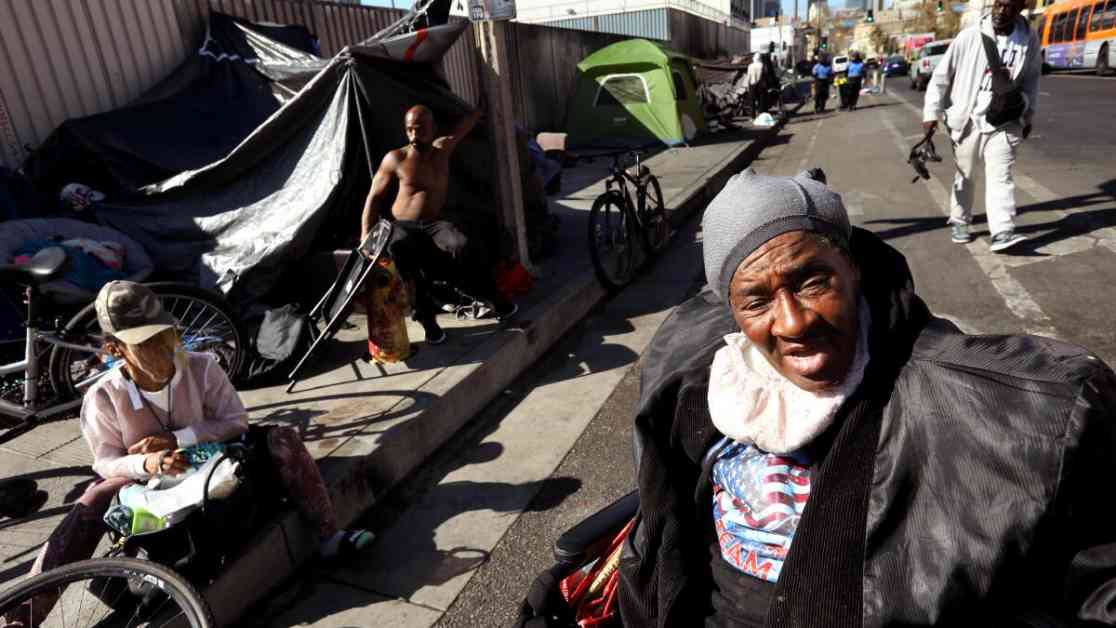President-elect Donald Trump has made a bold promise to address the homelessness crisis in America by arresting thousands of homeless individuals sleeping on the streets and relocating them to large tent cities on affordable land. This aggressive approach marks a significant departure from the current national strategy, which focuses on voluntary housing solutions.
Trump’s plan has sparked concern among homeless advocates who fear that such tactics could be inhumane and stigmatizing. On the other hand, Los Angeles Mayor Karen Bass, who is actively working to combat the city’s homelessness crisis, remains hopeful that she can find common ground with the incoming administration. Bass emphasizes the importance of collaboration and utilizing federal resources to provide temporary shelters for the homeless population.
As the political landscape surrounding homelessness continues to evolve, there is growing debate about the most effective strategies to address the issue. While some advocate for more punitive measures, such as aggressive policing and forced institutionalization, others argue for a more compassionate approach centered around the “housing first” principle. This approach prioritizes providing housing for individuals without imposing conditions like sobriety or mental health treatment.
The Supreme Court’s ruling allowing cities to enforce camping bans has also contributed to the ongoing discussions about homelessness policies. President Trump’s proposal for a national ban on urban camping raises questions about the feasibility of such a plan without cooperation from local and state authorities. The potential establishment of tent cities in conservative states like Florida highlights the division in approaches to addressing homelessness across different regions.
In light of these developments, homeless advocates express concerns about the potential cutbacks in programs and resources that support low-income housing and social services. They argue that focusing on housing individuals regardless of their sobriety status has yielded positive outcomes, such as reducing veteran homelessness. Any reversal of this approach could undermine progress made in addressing homelessness at both the local and national levels.
Ultimately, the debate surrounding homelessness policies underscores the need for a comprehensive and collaborative approach that prioritizes the dignity and well-being of individuals experiencing homelessness. As different stakeholders navigate the challenges posed by the homelessness crisis, finding common ground and working towards sustainable solutions will be essential in addressing this pressing issue in our communities.



























